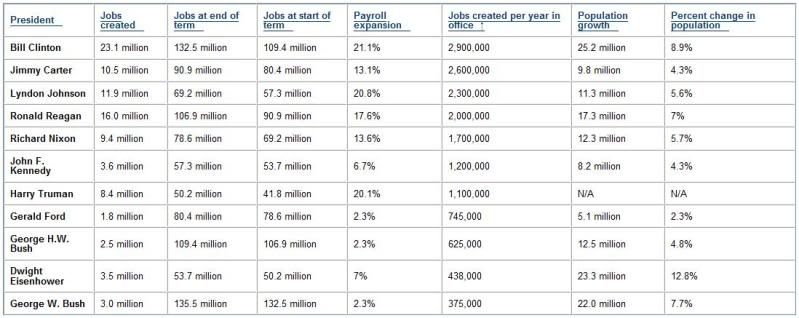The Bush tax cuts help small businesses create jobsChuck Grassley is a Republican senator from Iowa, ranking member and former chairman of the Senate Finance Committee.
Home sales. Private sector jobs and wages. Consumer spending. By almost every measure, the economy is in bad shape. Government intervention via stimulus spending and low interest rates hasn't done much to turn the economy around.
Yet the preferred approach by the administration and congressional allies is more of the same. They want to raise taxes on upper earners and use those proceeds to fund more government spending.
This is a bad idea. People are eager for reliable, well-paying jobs. Entrepreneurship provides those jobs. And entrepreneurs often pay taxes at the top marginal tax rates because they've worked their way up to those income levels.
Those who support raising taxes on upper-income taxpayers say the increases would affect only 2 to 3 percent of small businesses.
But 3 percent doesn't tell us anything about how many jobs are at stake. The 3 percent figure treats a one-person hot dog stand the same as a 100-worker metal fabrication plant. More than 20 million workers are employed by those firms directly targeted by the higher marginal tax rates. These small business owners would see a 17 to 24 percent increase of their marginal tax rates.
more WSJ chart:
Bush On Jobs: The Worst Track Record On Record
Extending tax cuts for the wealthiest families would add to the federal budget deficitSander Levin is a Democratic House member from Michigan and chairman of the Ways and Means Committee.Democrats in Congress supported tax relief for middle-class families in 2001 and our support remains steadfast today. Back then, our position was based on the understanding that the middle class forms the backbone of our economy and those families had seen an erosion of their economic security and were at risk of further decline.
We understood the fiscal challenges facing our nation and challenged the arguments touted by President Bush and congressional Republicans that tax cuts for the very rich would spur economic growth and create jobs, let alone pay for themselves. History has proven that the strong economic growth and job creation Republicans promised from the 2001 and 2003 tax cuts did not materialize. Under President Bush's tax agenda, America suffered its weakest economic expansion since World War II, with no net private sector job creation. In fact, President Bush's economic policies resulted in a net loss of private sector jobs during the eight years he served in office.
Still, in the face of these facts about economic growth and the need to address staggering federal deficits, Republicans argue that nothing short of an unpaid for, full extension of expiring tax cuts at all income levels is necessary. As the famous saying goes, "They are entitled to their own opinion, but not to their own facts."
According to the nonpartisan congressional Joint Committee on Taxation, extending the tax cuts for families making more than $250,000 would add $38 billion to the federal deficit next year alone.
Of that amount a full $32.7 billion would flow to 315,000 American families making more than $1 million per year and provide each of these families with an average tax cut of $103,835.more Updated to add:
When the prospect of the Bush tax cuts for the wealthy expiring on schedule is raised with Republicans, they almost inevitably claim that the expiration will disproportionately affect small businesses. Point out that fewer than two percent of small businesses make enough money to be affected if the top two income tax brackets increase, and the GOP consistently replies that the increase would hit half of small business income.
<...>
As weve noted before, this is a
selective reading of the data, as half of
net business income claimed on personal returns would be affected, which does not mean that it is all from businesses that are small. In fact, this income is largely consolidated in the hands of very wealthy individuals, some of whom are using the personal income tax system to duck the U.S. corporate tax. Heres a closer look at some of these small businesses (which are mostly S corporations or partnerships):
As Citizens for Tax Justice pointed out, Bechtel Corp., the largest engineering firm in the country, is an S corporation, and thus its owners file their income from the company on their personal tax returns. It is the fifth-largest privately owned company in the U.S. and had gross revenue in 2008 of $31.4 billion.
The Tribune Company the countrys second largest publisher of newspapers, including the Chicago Tribune and the Los Angeles Times is also an S corporation. It actually saved $1.8 billion in taxes by not filing as a corporation.
The average gross adjusted income of someone who receives more than half of their income from an S corporation and will be affected by the expiration of the Bush tax cuts for the wealthy will be $1.1 million next year.
Also included in this pile of business income will be income earned by
doctors, lawyers, hedge fund partners, corporate CEOs that receive a speaking fee on the side, people earning book royalties, and those (like former President George W. Bush) who have
passive investments in large companies that they in no way influence on a daily basis.
I spoke with Steve Wamhoff, Legislative Director of Citizens for Tax Justice, who explained that, when it comes to S corporations, 59 percent of earnings are going to the richest 2 percent (who claim
more than $10 million in S corp income). Meanwhile, 80 percent of the earnings from partnerships are going to the top 1 percent (which also have receipts of more than $10 million). So, he explained the vast majority of the receipts
are going to a very small number of entities that have receipts over $10 million.
more